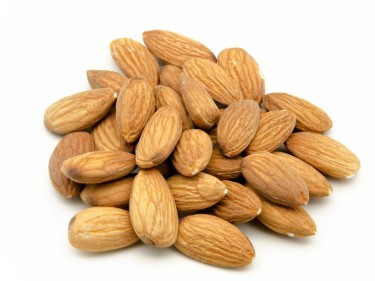Bursting with ’good’ fats, vitamins and minerals, could nuts be the perfect snack? Nel Staveley channels her inner squirrel
It’s been a good month for nuts. First, they had new research from Spanish scientists saying that including them in your diet can lower your risk of heart disease and type 2 diabetes; then came statistics saying a handful of (unsalted) peanuts, from time to time, may help prevent brittle bones. Nut promoters everywhere must be delighted.
After all, the poor old nut doesn’t always get the best press; they’re too fattening; they’re too salty; they’re too boring. But actually, as we’re hopefully now starting to realise, they’re also very, very healthy.
“Nuts should feature in everyone’s diet if they are trying to improve their health,” says registered nutritionist Robert Hobson (www.rhnutrition.co.uk). “Nuts in general contain monounsaturated fats, which are considered to be one of the healthiest types of fat linked to improvements in heart heath. It’s thought the benefit lies not just in their fat profile but in their protein, fibre, vitamin E and magnesium content. Nuts also contain plant sterols that can help to reduce cholesterol.”
Their benefits don’t stop there; here are more brilliant reasons to get nibbling on some nut …
WALNUTS
“Walnuts contain a good source of the omega 3 fatty acid, alpha linolenic acid (AHA), which is converted to EPA and DHA (other omega 3 fatty acids) in the body and has been shown to be beneficial to heart health,” explains Hobson. “They’re also especially rich in ellagic acid, an antioxidant that’s been linked to inhibiting the growth of cancer cells.”
CASHEW NUTS
“These have the greatest source of magnesium, which is involved in lots of chemical reactions in the body and is required to keep bones healthy, the heart beating steadily, maintains normal muscle and nerve function and keep the immune system strong. This mineral if also often used by women to help with the symptoms of PMS,” Hobson says.
Anything else? “Cashew nuts provide more than 3g of iron per 50g serving, making them a brilliant snack for people with low stores of this mineral – low iron intake is common in nearly a quarter of women in the UK and can lead to tiredness and fatigue. Most nuts are also a good source of copper, which is used to help with the uptake of iron in the body,” he adds.
ALMONDS
Almond milk is all the rage now, and it’s very easy to see why. “Almonds contain a useful source of calcium – 120mg per 50g – which makes them a useful addition to the diets of vegans, or people who are intolerant to dairy,” stresses Hobson.
“They also make brilliant ’milk’ when blended with water and a little maple syrup. Almonds and hazelnuts provide over 70% of the RDA for vitamin E in a serving. Vitamin E is a potent antioxidant that helps to protect the body from free radical damage and has been linked to a reduced risk of certain cancers. This vitamin is also essential to maintaining a healthy strong immune system and protecting cell membranes, hence it’s link to skin health.”
And yet another added bonus: almonds are particularly low-calorie for a nut, and unsweetened almond milk has less than half the calories of skimmed dairy milk.
BRAZIL NUTS
Brazil nuts are especially good for men, since they’re packed with selenium (just one nut can contain more than a day’s worth), a mineral thought to protect against prostate cancer and other diseases. Selenium also helps strengthen your immune system, and helps wounds heal.
PECAN NUTS
Not ideal in a pie, but on their own, pecans are more than acceptable. They’re rich in antioxidants, helping to prevent plaque build-up in the arteries; they’re a great source of vitamin B3, good for an energy boost, and they’re especially full of those cholesterol-lowering sterols.

